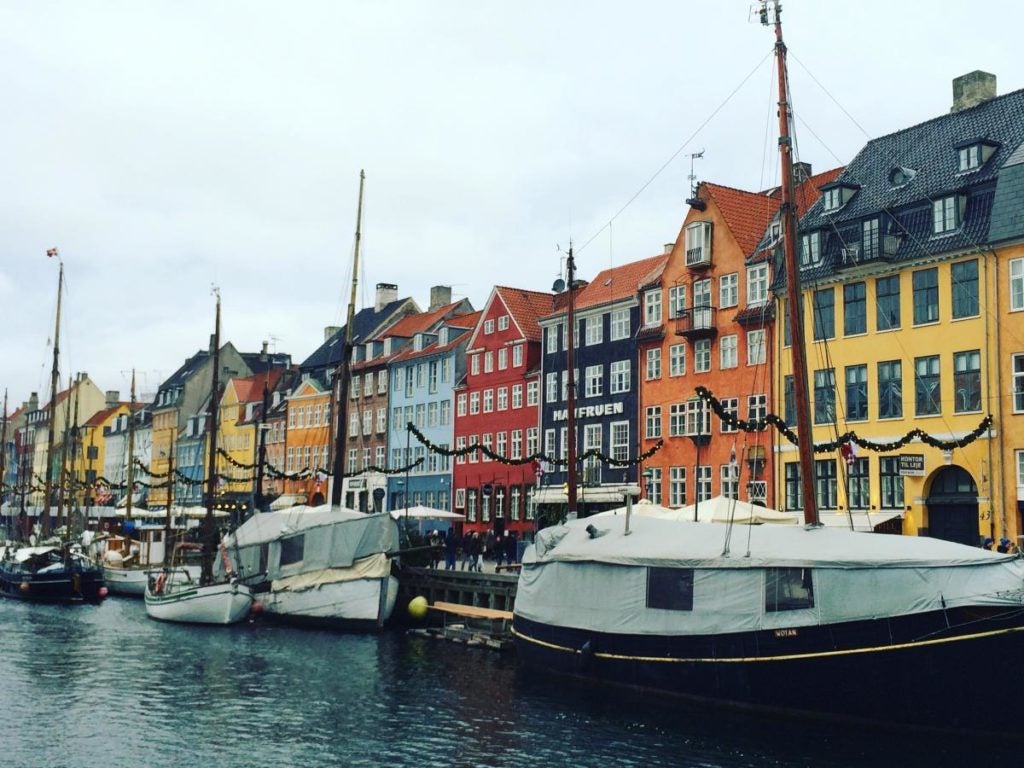Race & Ethnicity
Overview

Over a quarter of a million students studied abroad in the 2015-2016 school year, according to the Institute of International Education Open Doors Report. Of the 325,339 students who studied abroad, 28.4% identified as US racial or ethnic minorities. A common concern held by this population is the perception of their race in the host country. As you start your study abroad journey, it is important to reflect on how your race or ethnicity may be experienced, viewed, and understood differently abroad. Some students may be racial minorities at home but will be studying in a country where their race is the majority. Others may face becoming a racial minority for the first time. In any case, it is important that students be aware of their own expectations and cultural assumptions.
For some students, their race or ethnicity might provide a more challenging transition into the host country. In host communities where locals are not used to interacting with students who have different physical characteristics, they may make assumptions or be curious about your appearance. Some may be interested to learn more about your culture or ethnicity, but there may be others whose behavior toward you might make you uncomfortable. They may stare at you, try to touch your hair or your skin, or ask invasive questions about your cultural heritage, physical features, or national origins. In these situations, it is best to try to assume positive intent. You may find that confronting and learning to interpret their racial and ethnic perspective in a new context can help you grow and feel ultimately more secure with your identity. We encourage you to have early discussions about race and ethnicity, which can help you develop a realistic understanding of how your identity might play into the experience in different locations.
Think about:
- How is my race/ethnicity perceived in my host country? Are there stereotypes associated with my race/ethnicity?
- Does my host country have a history of prejudice/discrimination or acceptance/inclusion with my ethnic group?
- Am I going to be treated the same way in my host country as I am in the US? Will I be in the minority/majority for the first time?
- Is there a history of ethnic or racial tension in the country? If so, is the situation currently hostile to members of a minority race, majority race, or particular ethnicity or religion?
- Are there laws in the host country governing race relations? Ethnic relations? What protections are offered to ethnic or racial minorities?
- How will my personal racial or ethnic identity shape my experience abroad?
- How will I react if I encounter racism or other discriminatory behavior?
- How will I feel if I am the only minority in a cohort of other Americans on my program?
Before You Go:
- Make use of online resources that offer advice, personal narratives, and other information
- We also encourage students to reach out to the CMEA for further support.
Race and Ethnicity Resources:
- Diversity Abroad has a diversity and inclusion abroad guide for racial and ethnic minorities in study abroad.
- IFSA Unpacked offers personal stories from students on their experiences with race and ethnicity abroad.
- Black and Abroad provides stories, tips, and journeys from a community of black travelers.
- Glimpse Abroad offers a study abroad acclimation guide on race abroad.
Student Stories

Jasmine White
Arts and Sciences at Yonsei University (CIEE)
Learning to Love My Difference
Before I left for my semester abroad, I spent a lot of time mentally preparing myself for the experiences I might have as a black person in a homogenous Asian country like South Korea. However, even with all my preparation, I was still shocked the first time I realized I was being stared at. It was only my second day in Seoul. Out of the corner of my eye, I noticed an old man across the street facing me. We locked eyes for what felt like forever, and I was waiting for him to look away, but he wouldn’t (or maybe he couldn’t). Even after I looked away, the old man stood observing me for another 10 minutes. He was too dazed by my presence to be embarrassed. At that time, a million thoughts went through my head. I felt exposed. I felt insecure. What was he thinking?
By the end of my program, I had grown used to these kinds of encounters. And while I’ll admit it was really uncomfortable in the beginning, I’m actually grateful that it happened. As an introvert, these kinds of experiences made me confront something I had been terrified of: other people’s judgment. And as strange as it sounds, being in Korea brought me a newfound security in my blackness, in my skin, and a greater understanding of my inner self.

Kevin Yuan
Waseda University- Global Leadership
Being Chinese-American in Japan
As a Chinese-American studying abroad in Japan, I had two concerns with regards to how my ethnicity would be perceived. First, when considering the rather tense relationship between China and Japan, I feared the awkwardness of bringing up my ethnicity, not to mention the fact that I was born in a city close to Nanjing if the question of where my family was from in China came up.
When I finally arrived, however, I quickly realized just how unfounded my fears were, and by the end of the year, the only person who made a remark about my city of birth was a middle-aged American expat. Person-to-person connections have the power to overcome international tensions. Additionally, I had worried that being an Asian foreigner in Japan would make me feel like an invisible minority, yet I came to appreciate the lack of overt attention in public that many non-Asian foreigners often talk about getting, and I still had opportunities to share my own identity in groups of friends and my communities. Despite my early misgivings, I was able to embrace my own personal ethnic and racial identity in a completely new setting.

Gabriela Fuentes
Georgetown in Quito: Race, Gender, and Ethnicity in Latin America
Mi America en Sur America
I identify as a Chicana. The Webster dictionary definition of Chicana is “an American and especially a man or boy of Mexican descent,” but the Chicana identity is much more complex that. Therefore, my view on Ecuador is based on my previous experiences and is bound to be different and abstract. Quito, Ecuador gave me one of the warmest welcomes I have ever received. As soon as I stepped off of the airplane, I was greeted with the smell of freshly fallen rain and two new host parents who immediately embraced me in a hug and a kiss on the cheek (a traditional greeting that although I too practiced in Mexico had completely forgotten about in the U.S.). This would be the first of various cultural shocks I would come to experience and adapt to in Ecuador.
At, USFQ I took classes everyday from 8 a.m. to around 4 p.m., and the work load was heavy, but for once I was thoroughly learning the depths of my Chicana roots. The most important thing my professors taught me is that my Latin American roots do not start with the story of the conquistadors because they trace the LatinX roots to its original mother, the indigenous people of empires such as the Aztec and Inca. They introduced me to diverse genres of literature and authors like Pablo Neruda y Guaman Poma de Ayala. There is nothing more liberating than learning that my deep indigenous Aztec roots are built of head-strong warriors, innovative engineers, faithful followers of nature and spirits, upright and just communities, and lavish soil that produces innumerable amounts of rich resources.

Nadia Guamán
Chilean Universities Program in Santiago, Chile (IFSA)
Latina in Latinoamerica
¿De dónde eres? In Chile, a majority white-skinned society with a distinct accent, my brown skin and non-Chilean accent give me away as a foreigner. “De los Estados Unidos” (from the United States), I answer to confused looks. The confusion stems from an array of sources. First, many are confused by my Spanish abilities. Having grown up surrounded by and speaking Spanish my accent is of a native speaker. Therefore, their logical guess is that I am from a surrounding Spanish-speaking country. Second, there is my brown skin. Stereotypically, the exchange student from the United States is white. So when I, a woman of color, claim the United States as my home, I am subject to confused looks.
My counterparts continue to pry, asking about my status as a U.S citizen “¿Pero naciste allí?” (But, were you born there?) “¿Cuanto tiempo vives allí?” (How long have you lived there?) These questions are all in attempt to reach the information that explains my brown skin and Spanish abilities: the answer that my parents are Ecuadorian immigrants. As a first generation Latina studying abroad in Latin America I found myself constantly addressing these inquiries, defending my place in American and Ecuadorian culture.
